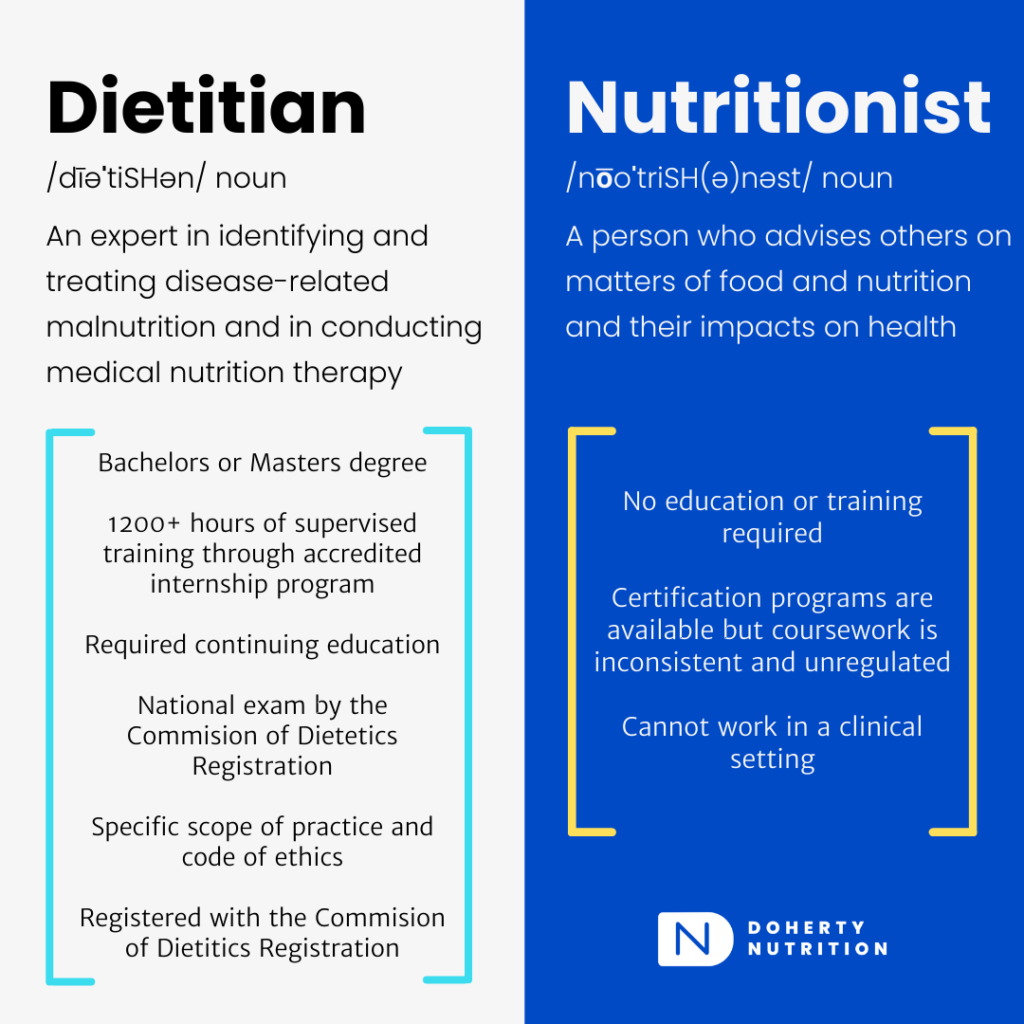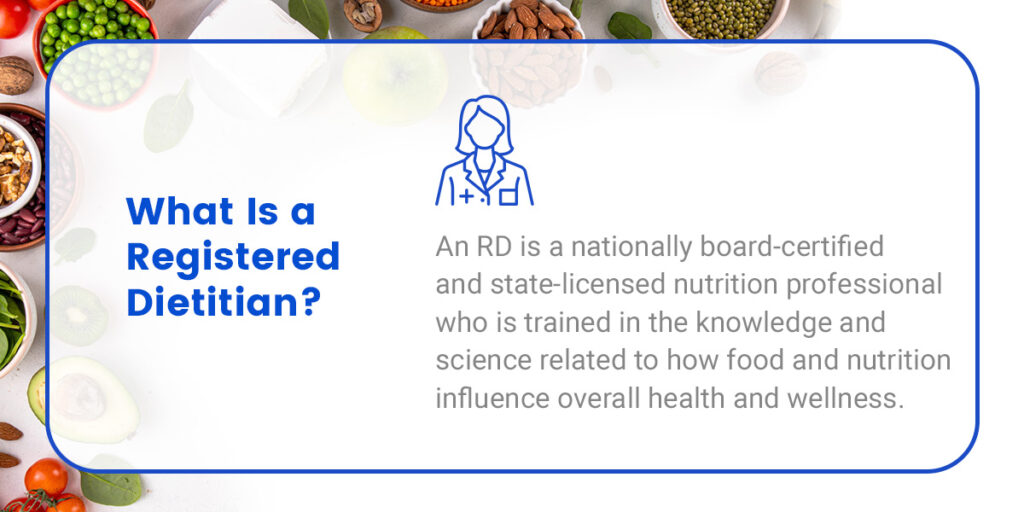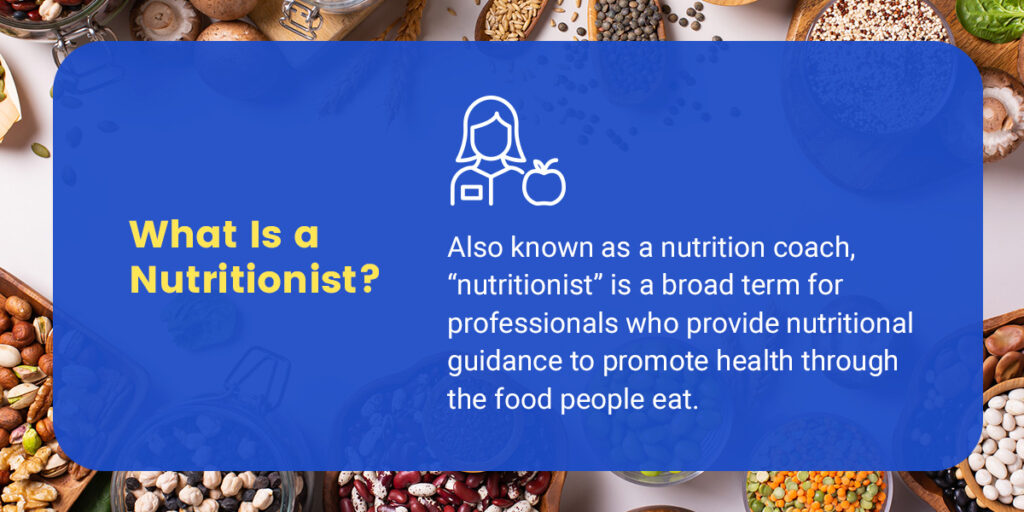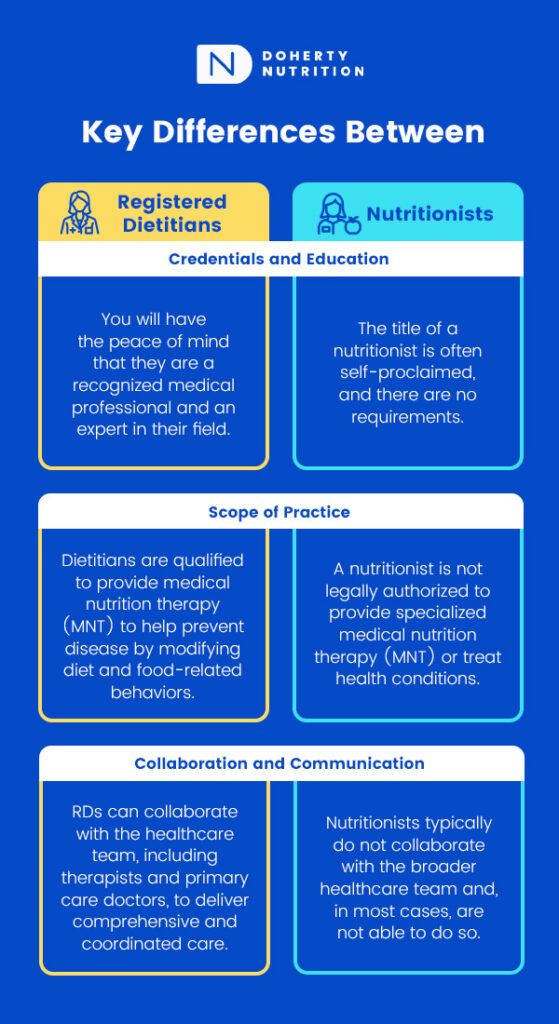Although nutritionists and RDs both promote health through nutrition, their roles differ significantly in terms of scope and qualifications.
Let’s explore the key differences between them to help you make more informed decisions on your journey to overall health and wellness.
Credentials and Education
A significant difference between dietitians and nutritionists is that the former must always undergo thorough, standardized training, whereas the latter aren’t regulated in this way.
When working with an RD, you will have the peace of mind that they are a recognized medical professional and an expert in their field. Because of this recognition, insurance providers often cover services from a dietitian.
In contrast, the title of a nutritionist is often self-proclaimed, and there are no requirements. As this role isn’t medically recognized throughout the country, your insurance provider will not cover your visit to a nutritionist. Even with certification, nutritionists’ level of knowledge and experience cannot be guaranteed.
Scope of Practice
RDs have a broad scope of services. They are qualified to provide MNT to help prevent disease by modifying diet and food-related behaviors. MNT can treat medical conditions such as:
- Diabetes and insulin resistance
- Heart disease
- Liver disease
- Kidney Disease
- Cancer
- Disordered eating and eating disorders
- Gastrointestinal conditions
- Hormonal imbalances
Part of this treatment involves creating personalized nutrition plans for individuals to reduce their symptoms and avoid future health complications. Dietitians take into account an individual’s medical history, lab results, medications, lifestyle, cultural preferences, food access, and personal goals to develop effective dietary strategies that complement medical treatment.
RDs are the only qualified medical practitioners who can work in clinical settings and provide nutrition therapy. A nutritionist is not legally authorized to provide MNT or treat health conditions. Their scope of practice is extremely limited, as they likely do not have the same depth of expertise as RDs.
Collaboration and Communication
RDs can collaborate with healthcare teams, including therapists and primary care doctors, to deliver comprehensive and coordinated care. They also communicate effectively, translating complex nutritional information into practical advice that clients can incorporate into their daily lives.
Nutritionists typically do not collaborate with broader healthcare teams and are, in most cases, unable to do so.
Should You See a Nutritionist or a Registered Dietitian?
When it comes to your health and wellness journey, the choice of an RD versus a nutritionist can impact the quality and effectiveness of the guidance you receive. RDs bring a wealth of education, training, and expertise, ensuring their advice is accurate and tailored to your unique needs.
Nutritionists can offer valuable insights, general guidance and education. However, these titles are not regulated, so their educational backgrounds and expertise can vary significantly. Following the advice of someone without qualifications could be harmful to your health.
Seeking the expertise of an RD is a wise choice — if you need advice for managing complex health conditions, doing so is essential. Whatever your health goals, RDs can provide personalized and comprehensive nutrition guidance. Their approachable, compassionate, and evidence-based guidance can empower you to make positive changes that contribute to your overall well-being.
Get Started on Your Health Journey With Doherty Nutrition
Whether you want to treat a medical condition, heal your relationship with food or are an athlete seeking a competitive edge, Doherty Nutrition’s team of RDs is here to help.
With our nutrition counseling services, you can discover how to harness the power of food to manage, treat, prevent and even reverse a range of health conditions. We also work with most insurance companies, so your appointment with one of our RDs may be fully or partially covered. Get started on your health journey and schedule a counseling appointment with one of our RDs today.
We look forward to guiding you to reach your health and wellness goals!





































One Response
What an informative and exciting first post!